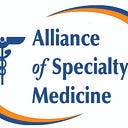UnitedHealthcare’s Red Tape Hints at Future Barriers to Patient Care
Lawrence Kim, MD, AGAF
After a major public outcry, the largest healthcare insurer in Colorado, UnitedHealthcare (UHC), delayed its disastrous plan to require prior authorization for most colonoscopies and endoscopies on June 1. However, this policy, punted to “early 2024,” still threatens to delay and disrupt care. As patients and physicians gear up for the fight to stop prior authorization from going into effect, UHC implemented another insurance barrier.
The company recently unveiled an amorphous data reporting policy for GI doctors that is already creating confusion and wasting precious time for office staff who should be performing more important duties — such as streamlining patient care. The policy, quizzically called “advance notification,” forces physician practices to spend hours daily reporting data UHC already has. This nonsensical requirement is time-consuming and will eventually impact patient access before prior authorization begins. To top it all off, it will further strain resources for independent GI practices like mine that are needed to meet patient needs for critical endoscopies and colonoscopies.
UHC ostensibly believes that too many colonoscopies and endoscopies are performed. Yet, they won’t reveal the data they say indicates overutilization — and I doubt UHC will get data through its advance notification program because data show these vital services are actually underutilized. The GI community sees the mysterious flip to advance notification as a last-ditch effort to find a rationale that justifies UHC’s “Gold Card” program that will go into effect early next year. According to United, if physician practices do not comply with advance notification, they will automatically be subject to prior authorization requirements next year.
Unfortunately, small GI practices are bearing the brunt of these new requirements. Already operating with a more streamlined administrative staff than larger practices, many smaller practices will have to hire new employees to comply with UHC’s overwhelming reporting requirements. This comes at a time when healthcare providers and employees are already in short supply, a situation that has only been exacerbated over the past few years as record levels of burnout fuel a growing physician and healthcare workforce shortage.
In my Denver metro practice, we are already seeing duplicate entries of non-clinical data, which, as it stands, will not provide UHC with any additional information beyond what they already have through claims data. UHC often requires us to make phone calls about the data, which can take up to 30 minutes each. As we complete 30–40 advance notifications per day, requiring two staff members to comply with this program, the strain of this useless requirement is mindboggling.
What is the endgame with United? We see the writing on the wall. These administrative delays could potentially reduce the number of procedures our practice can perform — and I fear patients will ultimately be impacted. These new bureaucratic hoops will almost certainly disrupt our ability to provide these time-sensitive procedures promptly.
In that sense, the advance notification program is little more than a precursor to the enforcement of prior authorization for medically necessary GI procedures — a reality that further cements our suspicion that what United stated publicly only months ago about scaling back on prior authorization was a disingenuous public relations ploy.
Gastroenterologists in Colorado and across the country are very willing to work collaboratively with UHC to address any overutilization concerns that accurate data can support. However, that data simply does not appear to exist, as UHC has been unable to provide it. Instead of moving forward with a program that will ultimately lay the groundwork for prior authorization — and overburden already struggling GI practices — UHC should continue to work with the GI community to find more reasonable solutions that do not threaten smaller practices or undermine patient access to timely, life-saving care.
Lawrence Kim, MD, AGAF, is vice president of the American Gastroenterological Association (AGA) and a gastroenterologist practicing in Lone Tree.
